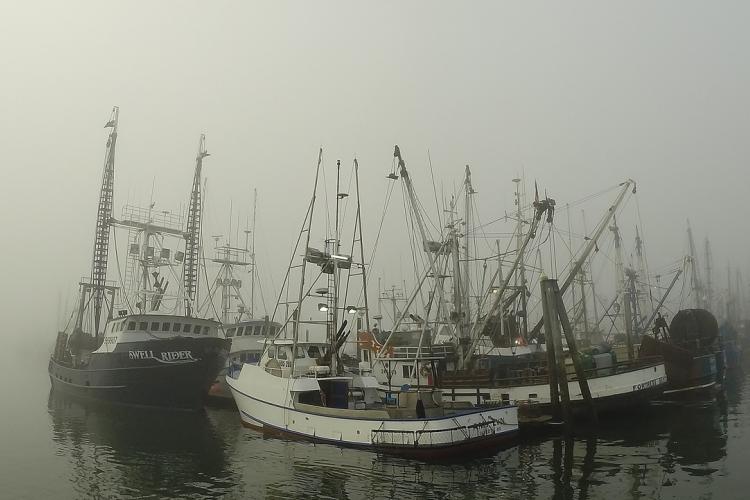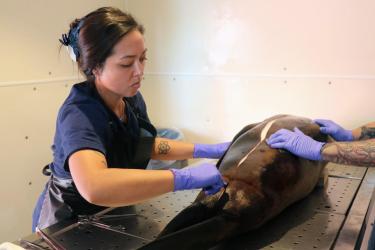What We Do
Social scientists study the human species—our behavior, our institutions, our relations to one another and the natural world. We seek a better understanding of the human values, actions, communities, and institutions that influence and are influenced by marine and anadromous fish, marine mammals, and other marine species and ecosystems in the Pacific Northwest.
Our research provides data and tools that support NOAA Fisheries and other agencies' regulatory and management decisions, and we contribute scientific work and information to the broader research community and the public. We collect and analyze economic and socio-cultural data to support the conservation and management of West Coast marine resources. These data and analyses inform management decisions and amplify resource value.
We carry out our work under mandates from the Magnuson-Stevens Act, Endangered Species Act, National Environmental Policy Act, and Executive Orders 12866 and 12898.
To fulfill these mandates and contribute to a broader understanding of fisheries and marine resource issues, we analyze:
- Net benefits to the nation
- Distribution of benefits
- Financial performance of participants
- Economic impacts
- Valuation of ecosystem services
- Community and social impacts
Research Areas
Commercial Fishing
We conduct a wide range of commercial fisheries economic analyses and related activities. These efforts enable the assessment of the magnitude and distribution of the costs and benefits associated with fisheries management decisions. Our work directly supports the NOAA Fisheries stewardship goal of maximizing benefits to the Nation while ensuring the long-term sustainability of all living marine resources.
Recreational Fishing
We provide data, analysis, and expertise to enable benefit-cost analyses and economic impact estimates of recreational fishery regulation changes. Recreational fishing is an ecosystem good that is usually not traded in formal economic markets. For goods like recreational fishing, calculating the change in net economic benefits requires us to use nonmarket techniques to estimate demand. Demand estimates are useful for cost-effectiveness or benefit-cost analyses that evaluate the relative economic efficiency of changes in fishery regulations, including bag limits and closures, as well as hatchery production.
Fishing Communities and Human Wellbeing
We conduct research and data collection to understand and measure contributions of Pacific Coast fishing and ecosystem resources to human well-being and evaluate the social and economic impacts of fishery management on fishing communities. Our work helps to minimize negative impacts of management on fishery-dependent communities and identifies strategies for fishers and communities to adapt to change.
Ecosystems
Economic and human dimensions research are essential elements of managing natural resources in an ecosystem framework. Social science can help understand these relationships within marine ecosystems. We work with natural scientists to develop integrated models to support the conservation and management of marine and anadromous resources and design of ecosystem-based fishery management (EBFM) approaches that promote profitability and sustainability of fisheries while minimizing adverse ecosystem impacts.
Protected Resources
We support conservation and recovery planning for Pacific salmon and steelhead, Southern Resident killer whales, and other endangered or protected species by identifying conservation strategies with a high return on investment. We also conduct research to understand how incentives, personal preferences, and institutions influence the uptake and success of conservation strategies.
About Our Team
Our team includes economists as well as social scientists with training in anthropology and environmental policy. We collaborate with scientists of multiple disciplines in other NOAA offices, universities, and research institutes.
Personnel
Leadership
Federal
Dr. Yeuan Allen Chen
Robby Fonner
Dan Holland
Dr. Lisa Pfeiffer
Amanda Phillips
Suzanne Russell
Erin Steiner
Non-Federal
Connor Lewis-Smith
Emily Sellinger



